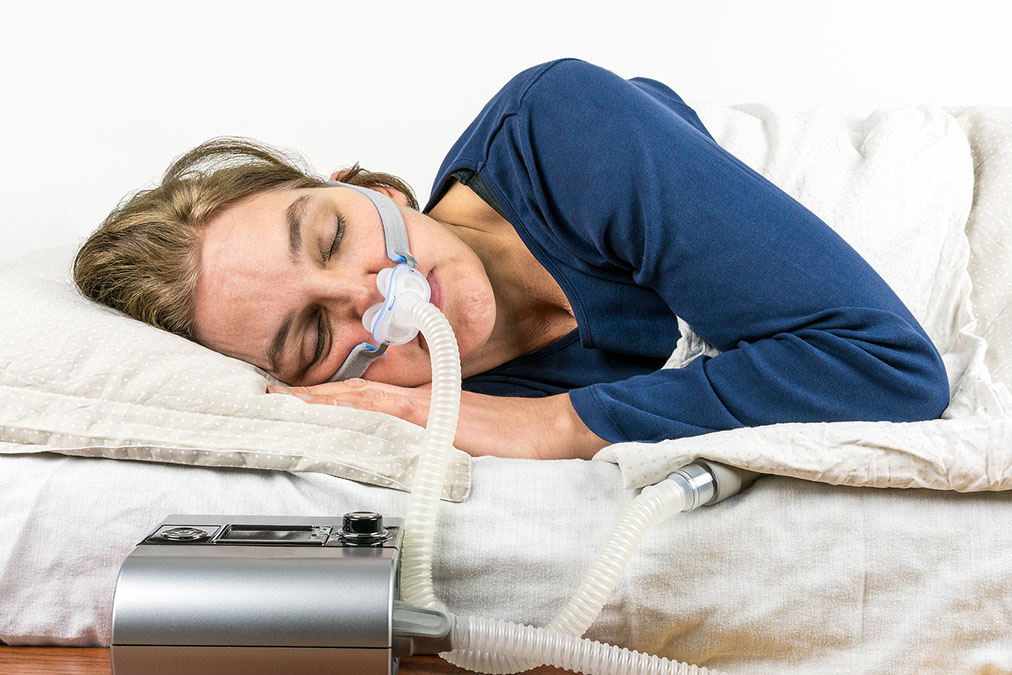 You may or may not be aware that you’re not processing new information as effectively as you should.
You may or may not be aware that you’re not processing new information as effectively as you should.
“What was it that I read yesterday?”
“What was her name again?”
“Where did I hear that?”
And you may think it’s a normal part of aging, right?
Wrong! It’s your sleep apnea that’s preventing you from processing new information. A new study in Proceedings of the National Academy of Sciences reveals this.
Worst of all, this will lead to lifelong dementia if you don’t act quickly.
So, how does sleep apnea steal your memory? And how can you reverse this?
Memory consolidation, the process of strengthening and organizing memories, happens primarily during sleep.
Even ancient Roman scholars noted the link between a good night’s rest and sharper recall.
Modern research has shown this process relies on three unique brain waves: slow, spindles, and ripples.
These waves, generated in the hippocampus (the brain’s memory center), work together during non-REM sleep to replay and cement the day’s experiences.
But what drives these brain waves? Scientists had no idea — until now.
Researchers at Northwestern University recently uncovered a remarkable conductor of these brain waves: your breathing.
Here’s what they found:
-
• Breathing creates a rhythm in the hippocampus, a brain region vital for memory formation.
• This rhythm aligns with the brain’s slow waves, spindles, and ripples during non-REM sleep.
• Together, these synchronized waves replay and strengthen neural connections formed during the day.
The researchers described breathing as the “conductor” of this intricate memory symphony.
How Does Sleep Apnea Disrupt Memory?
Sleep apnea causes repeated stops and starts in breathing throughout the night, disrupting the steady rhythm your brain relies on to organize memories.
This throws the hippocampus into chaos, preventing it from coordinating the brain waves necessary for memory consolidation.
Over time, this disruption can cause:
-
• Forgetfulness and brain fog.
• Increased risk of cognitive decline and dementia.
It’s therefore essential for your short-term and long-term brain health to heal your sleep apnea quickly.

 Overcoming IBD
Overcoming IBD Multiple Sclerosis
Multiple Sclerosis Banishing Bronchitis
Banishing Bronchitis Gum Disease Gone
Gum Disease Gone Overcoming Onychomycosis
Overcoming Onychomycosis Neuropathy No More
Neuropathy No More The Prostate Protocol
The Prostate Protocol Brain Booster
Brain Booster
 Ironbound
Ironbound
 Solution for Shingles
Solution for Shingles
 The Bone Density Solution
The Bone Density Solution
 The Ultimate Healing Protocol
The Ultimate Healing Protocol
 The Parkinson's Protocol
The Parkinson's Protocol
 The Chronic Kidney Disease Solution
The Chronic Kidney Disease Solution
 Overthrowing Anxiety
Overthrowing Anxiety The Fatty Liver Solution
The Fatty Liver Solution The Hypothyroidism Solution
The Hypothyroidism Solution
 The End of Gout
The End of Gout The Blood Pressure Program
The Blood Pressure Program
 The Oxigized Cholesterol Strategy
The Oxigized Cholesterol Strategy
 Stop Snoring And Sleep Apnea Program
Stop Snoring And Sleep Apnea Program
 The Arthritis Strategy
The Arthritis Strategy The Vertigo & Dizziness Program
The Vertigo & Dizziness Program The 3-Step Diabetes Strategy
The 3-Step Diabetes Strategy Hemorrhoids Healing Protocol
Hemorrhoids Healing Protocol The Erectile Dysfunction Master
The Erectile Dysfunction Master Weight Loss Breeze
Weight Loss Breeze The IBS Program
The IBS Program The Insomnia Program
The Insomnia Program The Migraine and Headache Program
The Migraine and Headache Program The Neck Pain Solution
The Neck Pain Solution The Menopause Solution
The Menopause Solution The Ejaculation Master
The Ejaculation Master The TMJ Solution
The TMJ Solution The Acid Reflux Solution
The Acid Reflux Solution The Fibromyalgia Solution
The Fibromyalgia Solution The Psoriasis Strategy
The Psoriasis Strategy